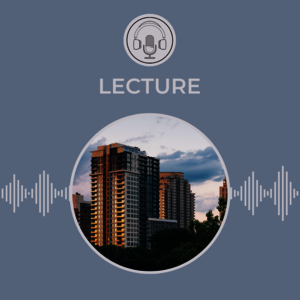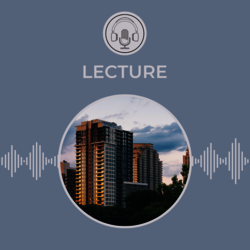 GHIL Podcast
GHIL Podcast

GHIL Lecture
Jon Lawrence and Christiane Reinecke
Sociology and the Urban Experience
Double lecture
8 August 2025
(0:55 h)

GHIL Lecture
Jon Lawrence and Christiane Reinecke
Sociology and the Urban Experience
Double lecture
Jon Lawrence: Shifting Visions of Working-Class Community in Post-War Britain
The idea that the British working class had its own distinctive way of life and culture can be traced back to at least the 1880s, but in the wake of the Second World War it became common to argue that urban working-class life was marked by dense networks of reciprocal social relationships and shared norms worthy of the term ‘community’. Out of this came Michael Young’s influential engagement with working-class culture and ‘community’ in the early 1950s, especially Family and Kinship in East London (1957), which became a classic text for social workers. Working-class writers like Delaney and Sillitoe pushed back at middle-class romanticization, but ultimately, an anachronistic vision of ‘traditional’ working-class community emerged, with serious consequences for both class politics and social cohesion in modern Britain.
Jon Lawrence is Emeritus Professor of Modern British History at the University of Exeter and author of Speaking for the People (1998), Electing Our Masters (2009) and most recently Me, Me, Me? The Search for Community in Post-War England (2019). He is currently working on a new history of working-class everyday (or ‘vernacular’) politics since the 1880s.
Christiane Reinecke: Of Ghettos and Segregations: Making Sense of Racial and Ethnic Diversity in Late Twentieth-Century Cities
In the latter half of the twentieth century, migration and racial diversity came to be seen as major social problems in many Western European cities. This talk aims to make sense of this development by exploring how social scientists (and the data and narratives they produced) impacted on urban debates and policies in postcolonial France and the Federal Republic of Germany. As part of a double lecture, it discusses whether there was a shift from ‘class’ to ‘race’ and ‘ethnicity’ in the construction of social problems in late twentieth-century Western European cities.
Christiane Reinecke is Professor of Modern European History at the Europa-Universität Flensburg in Germany. Specializing in migration history, urban history, and the history of the social sciences, she mostly focuses on nineteenth- to twenty-first-century French, German, and British history, examining these Western European histories as part of global processes such as decolonization.
Don't miss the accompanying interviews:
In this episode, we talk about working-class communities. Or rather: ideas about the working-class, some of which are quite romanticised. Joining host Kim König and Research Fellow Ole Münch to discuss the topic of his GHIL lecture is Jon Lawrence, Emeritus Professor of Modern British History at the University of Exeter. Together, they explore how these ideas have influenced scholarly discourse and political imagination in post-war Britain, as well as the tension between lived experience and intellectual frameworks when it comes to understanding working-class life. Drawing on field notes from post-war social science projects, Jon's research uncovers surprising patterns in how researchers approached working-class culture and reveals why certain perspectives became more prominent than others. We also consider the enduring power of ideas about community and why these scholarly frameworks continue to be important for understanding Britain today.
Interview with Christiane Reinecke
In this episode, host Kim König and Research Fellow Ole Münch are joined by Christiane Reinecke, Professor of Modern European History at the Europa-Universität Flensburg, to discuss her research on notions of urban problems in late 20th-century European cities. Drawing on Christiane’s GHIL lecture, they discuss the shift in urban policy discourse from class-based concerns to issues of migration, race and ethnicity, and explore the role of social science in shaping these developments. Our conversation covers comparative European approaches to diversity and integration, from Germany and France to Britain and the Netherlands.